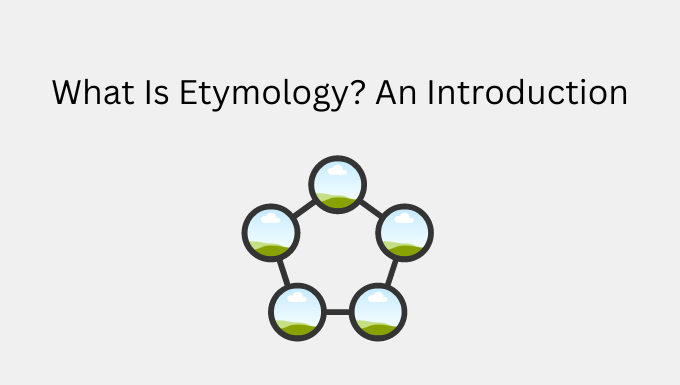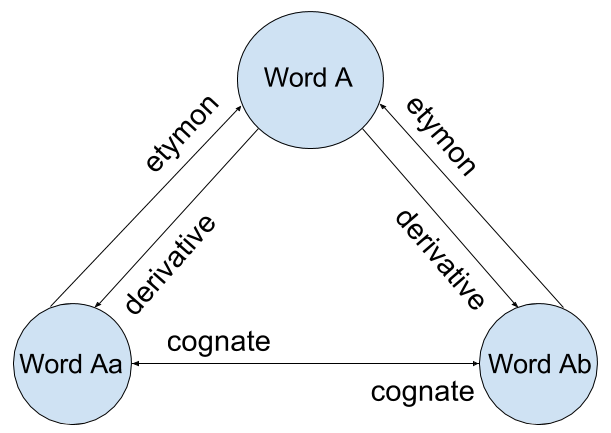Table of Contents

I. Introduction
Etymology is the study of the origin and history of words—where they come from and how their meanings and forms have changed over time. It helps us trace the journey of words, from their roots in ancient languages to how we use them today.
Understanding etymology enriches our grasp of language and communication. It can deepen our understanding of words, reveal cultural histories, and even help us make sense of tricky spellings and expressions. By learning where words come from, we get a clearer picture of how language connects us to the past and evolves over time.
The goal of this post is to introduce you to the basics of etymology. Whether you’re curious about language or just enjoy learning about words, exploring etymology can add a whole new layer of understanding to the way we communicate.
II. What is Etymology?
Etymology is the study of word origins and histories. It looks at where words come from, how their meanings and forms have evolved, and how they’ve been borrowed or adapted from other languages. In short, etymology traces the “biography” of words.
The study of etymology goes back thousands of years, with scholars in ancient Greece and Rome showing an early interest in word origins. Over the centuries, as languages changed and mixed, etymology became a more established field. Today, it combines history, linguistics, and anthropology to explore how language has developed across cultures and time.
Etymology helps us see how language is constantly evolving. By studying the origins of words, we can understand shifts in culture, technology, and society. For example, many English words have Latin, Greek, or Germanic roots, reflecting the influences of these ancient languages. Etymology also reveals how words adapt, take on new meanings, or even fade from use over time.

III. Why is Etymology Important?
Etymology offers a window into how languages evolve and adapt over time. By studying word origins, we see how meanings shift, new words emerge, and older words fade. This ongoing process shows how language keeps pace with social, scientific, and cultural changes.
Words often reflect the cultures and historical events that shaped them. For instance, English has borrowed words from Latin, French, German, and many other languages due to past invasions, trade, and colonization. Etymology allows us to trace these influences, showing how language carries the marks of history and cultural exchange.
Knowing the roots and origins of words can make vocabulary easier to understand and remember. When you recognize word roots and patterns, you can often guess the meanings of unfamiliar words. This deeper understanding of vocabulary not only strengthens comprehension but also enriches communication skills.
IV. How Etymology Works: Key Concepts
A. Root Words
Root words are the basic building blocks of many words. They carry the core meaning, which can then be expanded or modified by adding other elements. For example, the Latin root “scrib” means “to write,” and it forms the base of words like “describe” and “inscription.”
B. Prefixes and Suffixes
Prefixes and suffixes are added to root words to change or expand their meanings. A prefix appears at the beginning (like “un-” in “unhappy”), while a suffix is added at the end (like “-ful” in “hopeful”). These small changes allow us to create many variations and nuances in meaning from a single root.
C. Language Families and Borrowing
Languages often influence each other through “borrowing,” where words from one language are adopted into another. For instance, English has borrowed extensively from Latin, French, and Germanic languages. This borrowing creates a rich tapestry in modern English, blending different language families and giving us a unique vocabulary mix.
D. Semantic Drift
Semantic drift is the process by which word meanings shift over time. Words can take on new or expanded meanings, sometimes even becoming the opposite of their original sense. For example, the word “silly” once meant “happy” or “fortunate” but has since shifted to mean “lacking seriousness.” This drift shows how language adapts to cultural and societal changes.
V. Examples of Etymology in Everyday Words
A. Common Words with Surprising Origins
Many everyday words have surprising origins that reveal hidden histories. For example, “salary” comes from the Latin word salarium, which referred to the money given to Roman soldiers to buy salt—a valuable commodity at the time. This shows how certain things, like salt, once played a central role in people’s lives.
B. Examples from English and Other Languages
English is full of borrowed words with interesting backgrounds. For instance, the word “algebra” comes from Arabic al-jabr, which means “reunion of broken parts,” hinting at the origins of mathematical ideas in Arabic culture. Another example is “robot,” from the Czech word robota, meaning “forced labor,” reflecting early notions of robots as mechanical laborers.
C. How These Origins Reflect History, Culture, and Human Behavior
The origins of words reflect the evolution of human behavior, technology, and cultural interactions. Words like “quarantine” (from the Italian quaranta giorni, meaning “forty days”) originated from the period ships were isolated to prevent disease spread. This shows how language adapts to societal needs and historical events, preserving these moments in the words we use every day.
VI. How to Start Learning Etymology
To get started, consider using resources like The Etymologicon by Mark Forsyth, which offers a fun journey through word origins, or Word Origins…And How We Know Them by Anatoly Liberman, which explores how etymologists uncover the history of words. Online tools like Etymonline (an online etymology dictionary) and the Oxford English Dictionary are also great for quick lookups and deeper insights.
One useful technique is to start analyzing word roots, prefixes, and suffixes. Understanding these parts can help you break down unfamiliar words and guess their meanings. Using an etymology dictionary can also be invaluable—when you look up a word, you’ll often find surprising connections that reveal how words have evolved.
Incorporating etymology into your daily life is easy and fun! When you come across an interesting word, take a moment to look up its history. You might also make a habit of noting down any unfamiliar words and exploring their roots and origins. This practice can quickly expand your vocabulary and deepen your understanding of the language.
To Conclude
Etymology helps us understand where words come from and how they’ve changed over time. By learning about word origins, we can see how language is connected to history and culture. It’s also a fun way to learn new words and understand them better.
To start, try using some of the resources we mentioned, looking up word histories, and noticing the words you use every day. The next time you hear an interesting word, look up its background—you might learn something new!